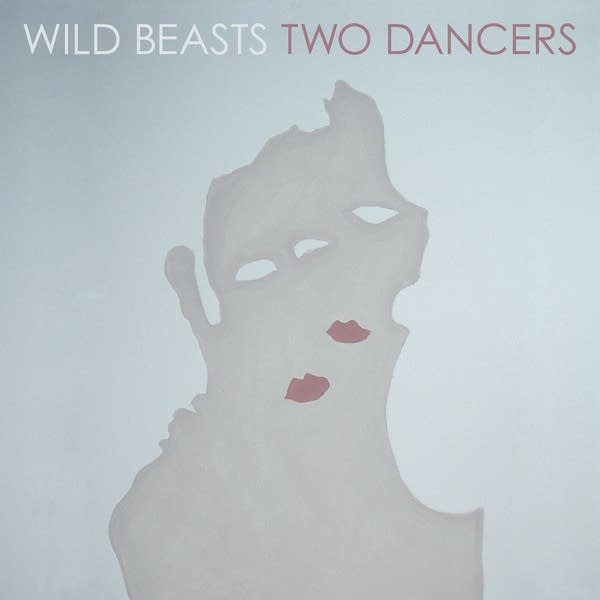Album Review: Wild Beasts - Two Dancers
August 03, 2009

In the 2000s, when buzz about a new band can be spread in the form of a soundbite-sized description, it's become requisite that an artist's sound can be reduced to an amalgam of hip influences. While it might make a band easier to blog or tweet about, this phenomenon mostly just inflicts a two-way musical injustice: either the contemporary band seems devoid of original content or their antecedents are transformed from a piece of music history to a reissue-ready flavor of the month.
The Kendal, UK-based quartet Wild Beasts, then, are refreshingly untaggable. Their sophomore album, Two Dancers, was released in August to a chorus of perplexed praise, perhaps owing to their peculiar sound. True, their music seems sourced in the same kind of rigid post-punk darkness that informed, say, the archetypal '00s hype band, Interpol. Yet the production is so lush and gentle, and the tunes so imaginatively percussion-driven, that the band has a cavernous and expansive sense of rhythmic space reminiscent of electronic dance music. Tracks ebb and flow more readily than they build to a traditional rock climax, and the texture-laden guitar work and bass throbs are layered impressionistically, making each song as atmospheric as it is danceable.
However, Wild Beasts' stark and seductive music merely sets the stage for their central feature: the bizarre, operatic voice of singer Hayden Thorpe. A melodramatic falsetto prone to uncanny outbursts, it's an instrument all its own. Thorpe is given plenty of space to stretch his vocal ability throughout the album, and he proves capable of shape-shifting warbles that place him instantly among the most unique vocalists to emerge in the last few years. Yet Thorpe also wields his voice carefully, exercising grace and restraint as much as he indulges explosive theatrics.
Ironically, though Thorpe is the most unique, disarming facet of the band's sound, he is also the easiest reference point for other bands. Scottish post-punk duo the Associates, whose wildly theatrical singer Billy Mackenzie was once rumored to have had a gay fling with Morrisey, had a similar air of deranged cabaret and dance-punk gloom. Another key reference point is the glam-damaged histrionics of early Britpop stars Suede. Yet Wild Beasts' austerity, as well as their more abstract musical elements, distances them from these precedents.
Thorpe is also a deft songwriter. He structures his songs around melodies strong enough to withstand his random vocal dalliances, and his lyrics craft rich, playful narratives of debauchery, often with hints of violence. "Any rival who goes for our girls/ will be left thumb sucking in terror/ and bereft of all coffin bearers," he threatens on one song in an absurdly soft swoon.
On album opener "The Fun Powder Plot," warm organ tones and bass plucks give way to a dark dance-punk groove over which Thorpe adds further shades to his portrait of reckless youth: "with courage and conviction/ and donkey-jaw diction/ we cry for the cause/ because the courts have left us lonely." Yet while these darkly poetic turns of phrase and his ravishing vocals lend his stories a hint of grandeur, he is also prone to bursts of hilarious coarseness--such as later in the same song, as he sings, "this is a booty call/ my boot, my boot, my boot, my boot up your asshole." Confrontational yet eloquent, Thorpe's lyrical persona is unique enough to match his vocal one.
Single "Hooting and Howling" is an instant highlight, building from a gentle opening to one of Thorpe's most raucous vocal and lyrical passages. "We're just brutes, looking for shots to loot/ we're just brutes, hoping to have a hoot," he howls, his voice straining grittily in the mid-range rather than erupting in falsetto. Perhaps the band's definitive track to date is the awesomely titled "We Still Got the Taste Dancing on Our Tongues," recently given a hyper-disorienting remix by manic dubstep producer Raffertie. Catchy and driving, the song balances Wild Beasts' rock dynamics with its debt to dance music, yielding a thrilling hedonist anthem.
Yet while "Tongues" perfectly encapsulates the band's many elements, it is just a notch below the album's best track, "This Is Our Lot." A taut, sinister one-bar guitar riff recurs throughout the song, anchored superbly by the rhythm section to create a sense of ever-mounting tension that is blissfully ignored by the dreamy guitar fiddling and and Thorpe's perfectly warped vocals. The lyrics are an encapsulation of the album's scenes of addled, nocturnal socialites. "We find ourselves dancing late/ like young reprobates," runs one line, while the bridge finds Thorpe melting down in the general direction of a lust object--"My darling/ my dumplin'/ My plump heart-a-thumpin'/ begging you/ to come to me/ I couldn't be more ready/ I couldn't be more ready"--before dissolving in a wordless squeal.
At under forty minutes, the album has little time to get samey and boring--especially since bassist Tom Fleming takes lead vocals on a handful of tracks, keeping Thorpe's antics winningly peculiar rather than grating. If any complaint can be leveled against it, it's that Wild Beasts' sound is too often odd and too rarely adventurous, intriguing yet ultimately unexciting. Yet the ferocity they show on their best songs suggests that Wild Beasts are honing their chops and arriving somewhere very exciting indeed.
